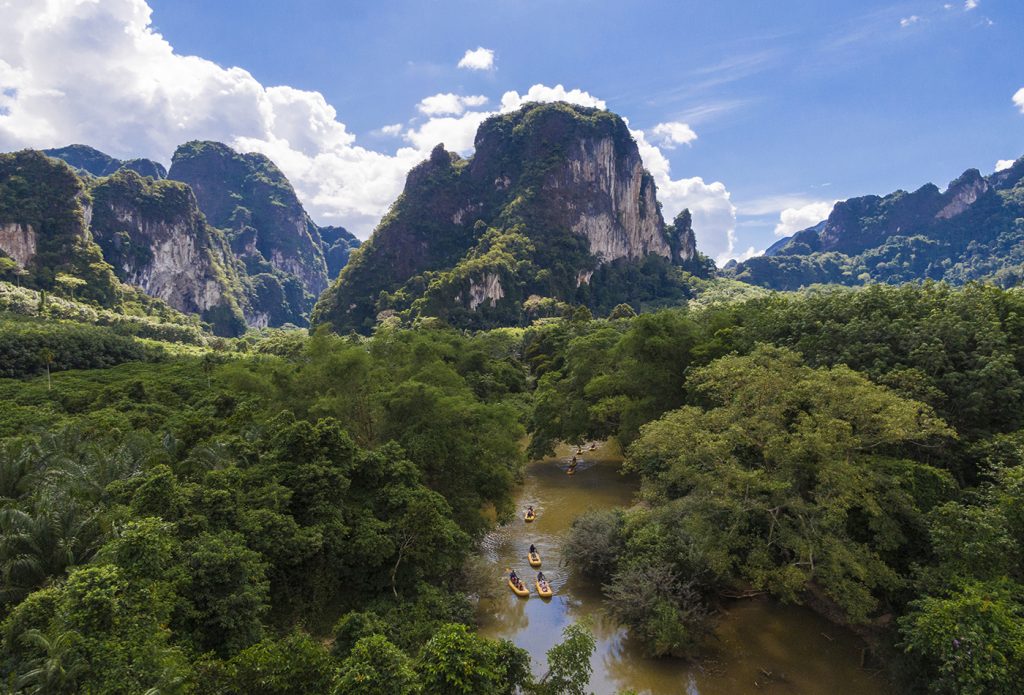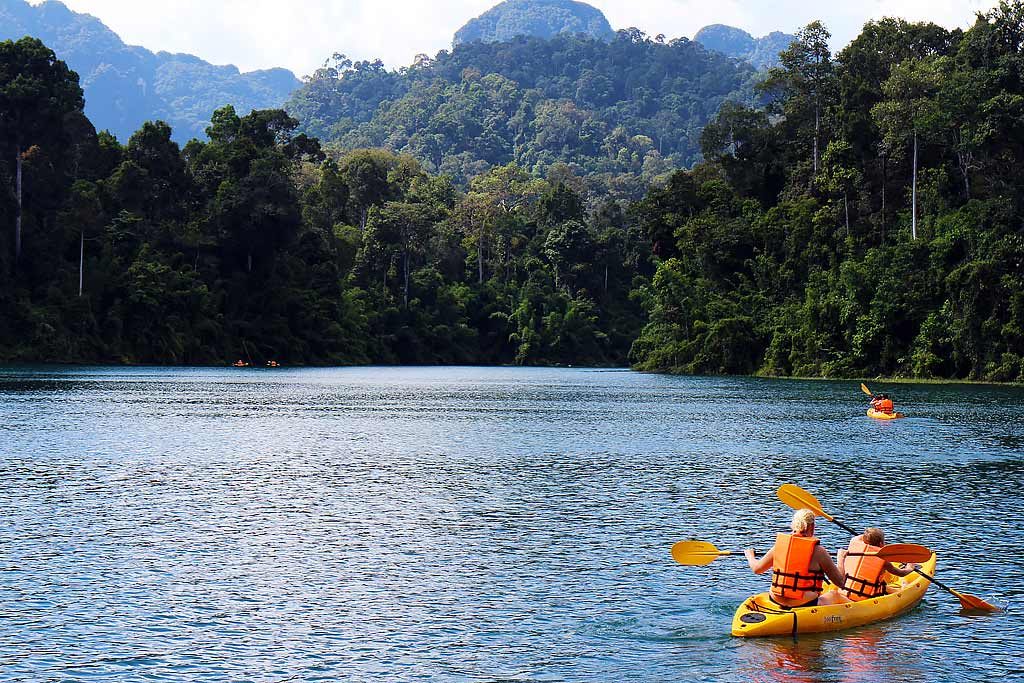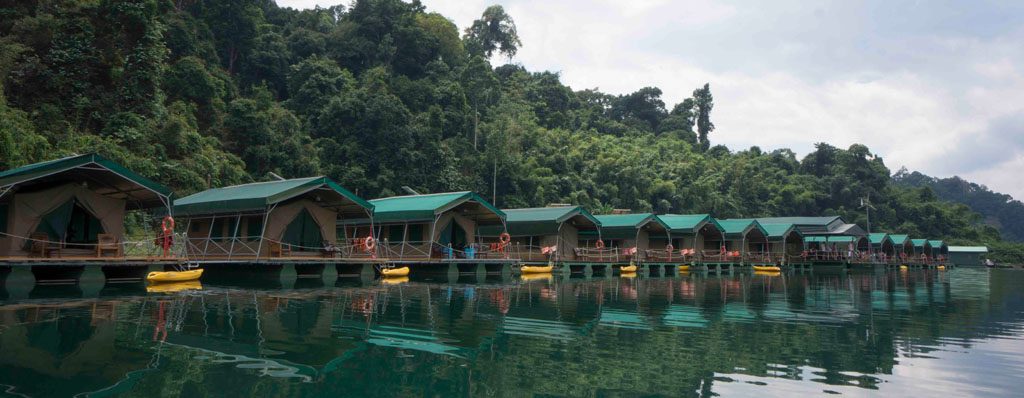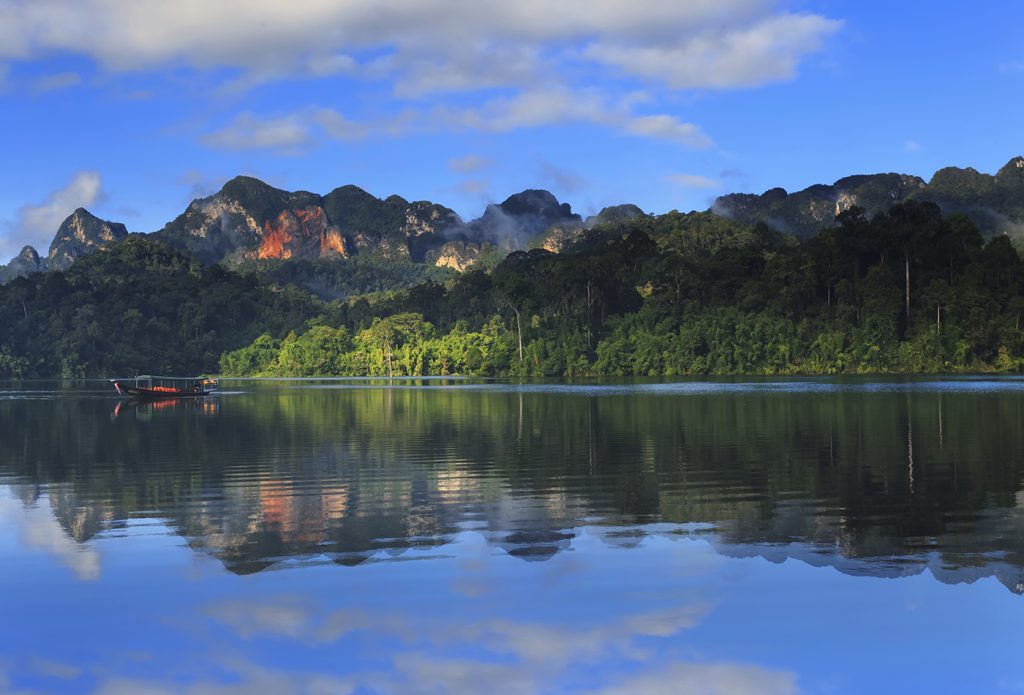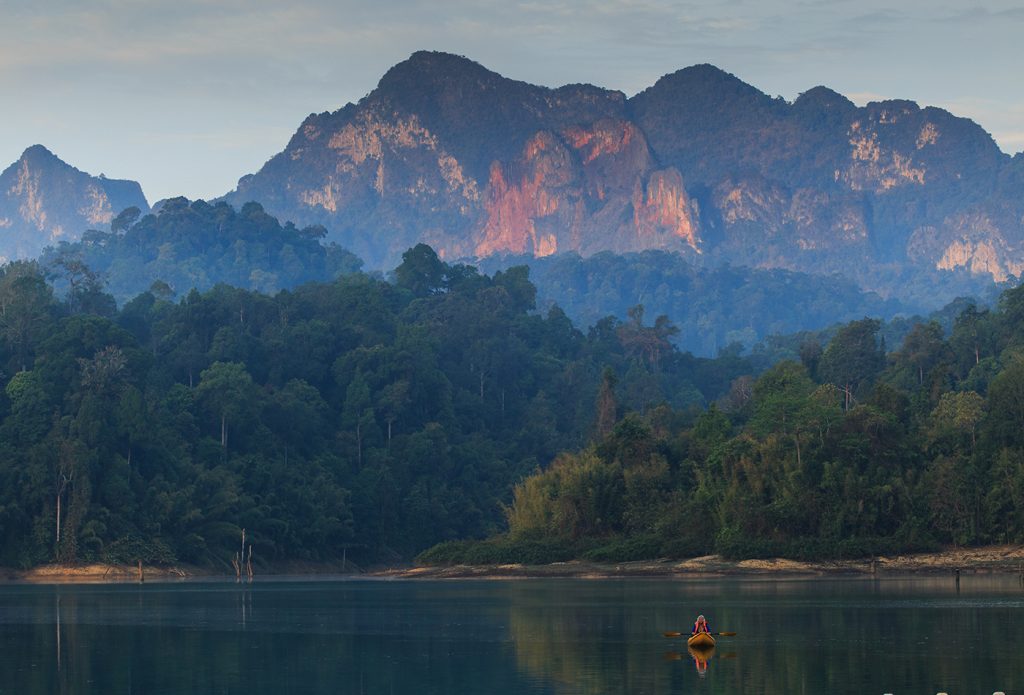Guest blogger John Borthwick takes a look at developments in sustainable and regenerative tourism in Thailand.
“I’m a coral gardener,” says Thai marine ecologist Khun Aorn as she surfaces, grinning, from the Gulf of Thailand waters. We’re at Koh Talu island in Prachuap Khiri Khan province where she and dive-master Khun Oh have been leading local school kids in a coral regeneration project. We head out to a pontoon where the students learn how to tie fingers of staghorn coral to a tubular frame that is then lowered to the seabed. Over the next few months these will bloom to form a new coral garden.
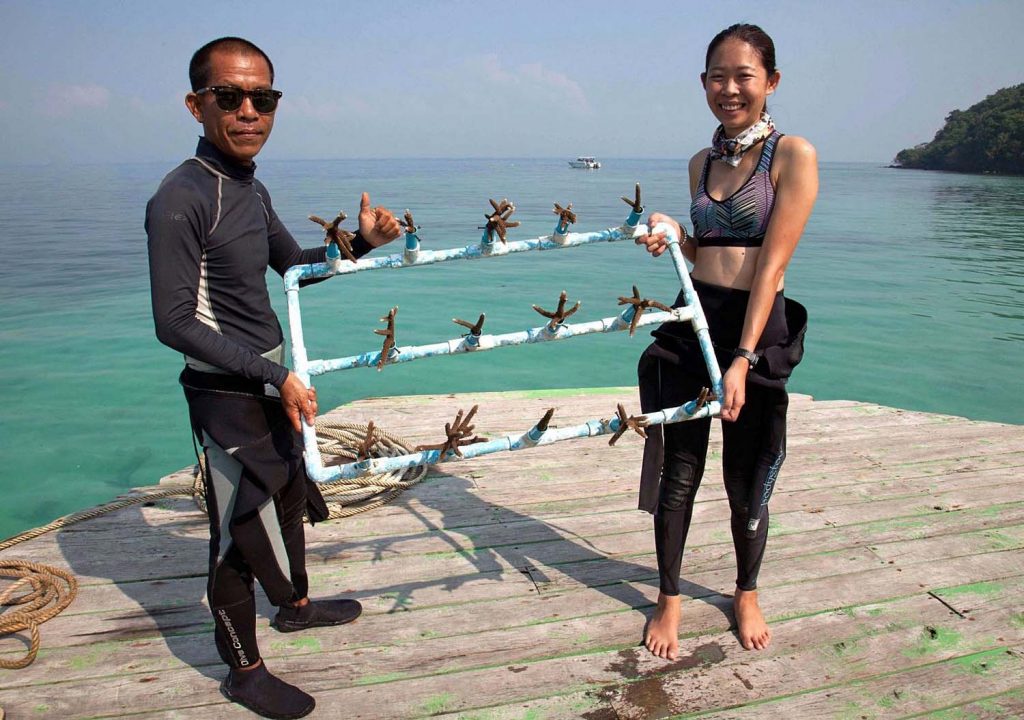
Aorn, 28, is one of a generation of educated, engaged young Thais making both an impact and a career in conservation. For travellers interested in similar marine activities several commercial operators organise ‘voluntourism’ programs at islands like Koh Phangan and Koh Tao. Fee-paying volunteers, who are interested in coral or sea turtle projects, typically work a five-day week as part of a supervised team and should be certified divers.
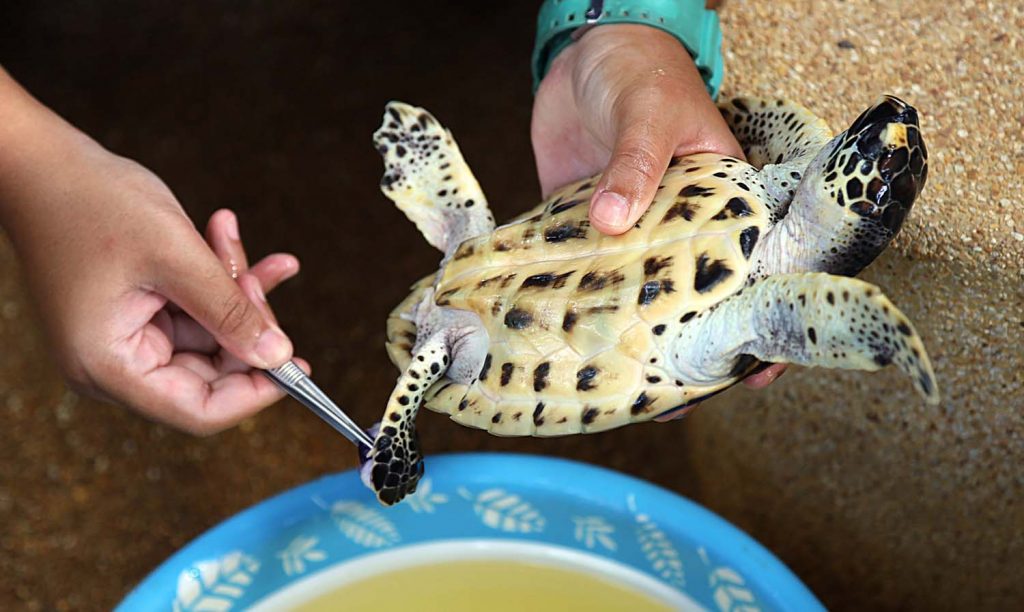
Thai beach resorts often support local sea turtle sanctuaries and involve guests who might be cash-rich but time-poor. At Khao Lumpee-Haad Thaymuang National Park in Phang Nga province guests from the nearby Aleenta Phuket Resort can sponsor and release turtle hatchlings. Further south on that same Andaman coast, guests and visitors at Phuket’s JW Marriott resort can observe the Mai Khao Marine Turtle Foundation at work. And of course volunteer a donation.
Thai National Parks
An overlooked but major contributor to low-impact tourism is Thailand’s extensive network of national parks. Many offer ranger–led excursions as well as budget cabins and camping sites. Koh Tarutao Island in Satun province on the southern Andaman coast is a good example. The park headquarters rents basic bungalows and tent sites, from where you can range out by foot or bicycle to encounter truly untrammelled beaches, jungle birdlife and giant monitor lizards.
Tip: book well ahead for National Park accommodation and try to avoid Thai national holidays.
Khao Sok National Park, one of Thailand’s unsung wonders, is a 740 sq km domain of rainforest, lakes and limestone peaks. Located inland north of Phuket it is part of Thailand’s largest wilderness area. Visitors can stay in low-impact pontoon cabins that become their base for jungle excursions to spot macaques and gibbons. A few hours spent kayaking on the park’s magical Cheow Lan Lake may be among your most personally regenerative ones ever.
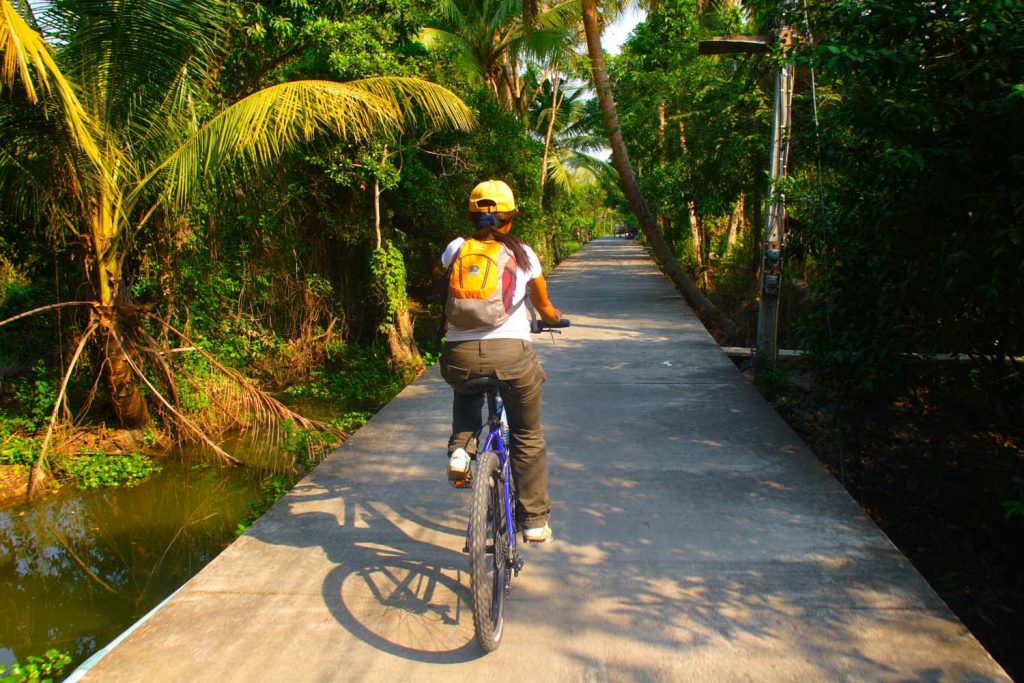
Meanwhile, the waterways of Phuket Marine National Park in the north of the island shelter a series of species-rich mangrove trails. Exploring them in a rental kayak is the probably the holiday island’s best, least-known thrill.
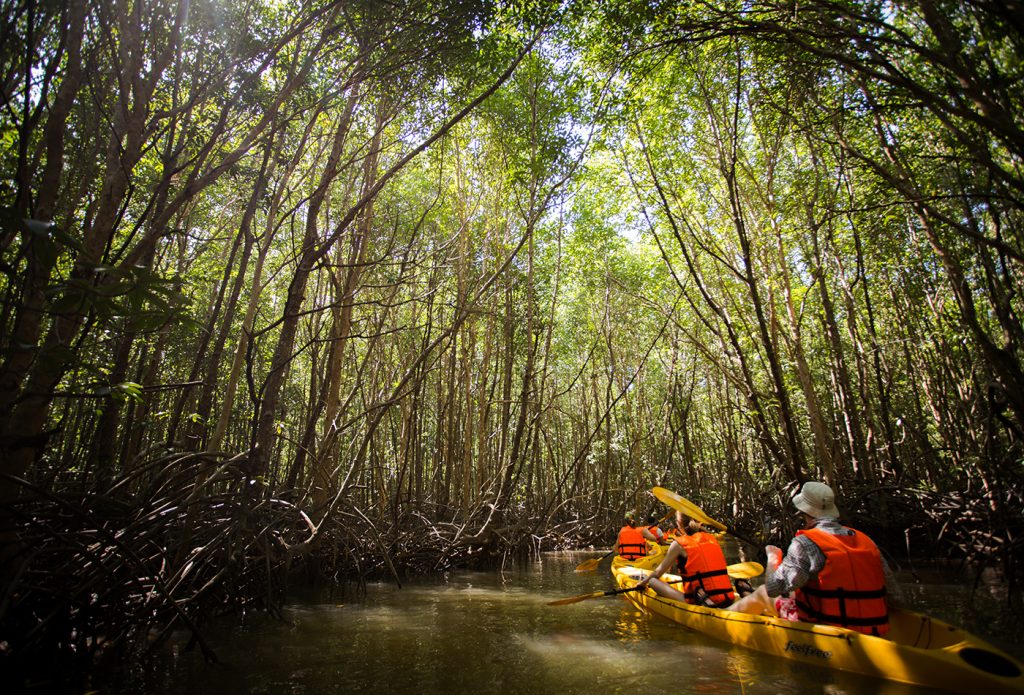
Elephants Matter
Recent years have seen a radical reappraisal in Thailand of elephant rides and other exploitative practices. ‘Due to attitudes among inbound tourists, many of the activities we once offered have changed,’ says John Roberts who oversaw the Anantara Golden Triangle resort’s elephant camp for two decades. Elephant polo and rides are gone, replaced by activities like a morning ‘Walk With Giants’, as offered by the Golden Triangle Asian Elephant Foundation.
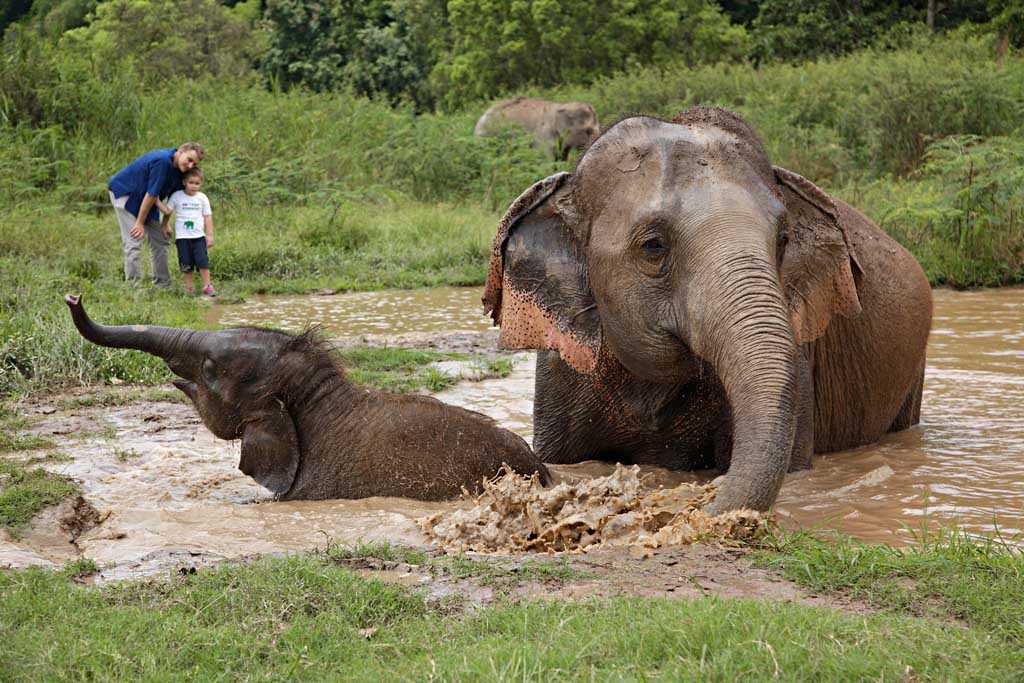
The GTAE foundation which cares for 20 rescue elephants runs a ‘no fee’ program for volunteers who make a minimum two-week work commitment. Other ethical operators include Phuket’s Elephant Sanctuary where half- and full-day programmes for visitors start from around $125 a head, as well as shorter tours of its excellent 12ha home for a dozen rescue elephants.
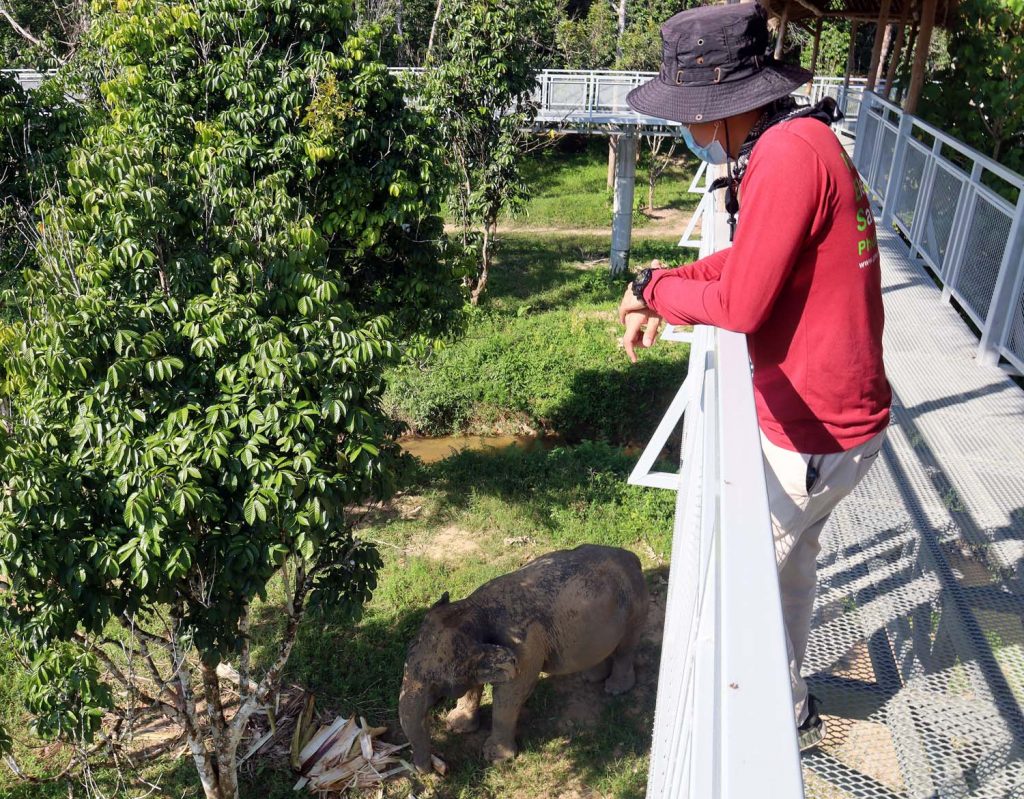
Copyright John Borthwick 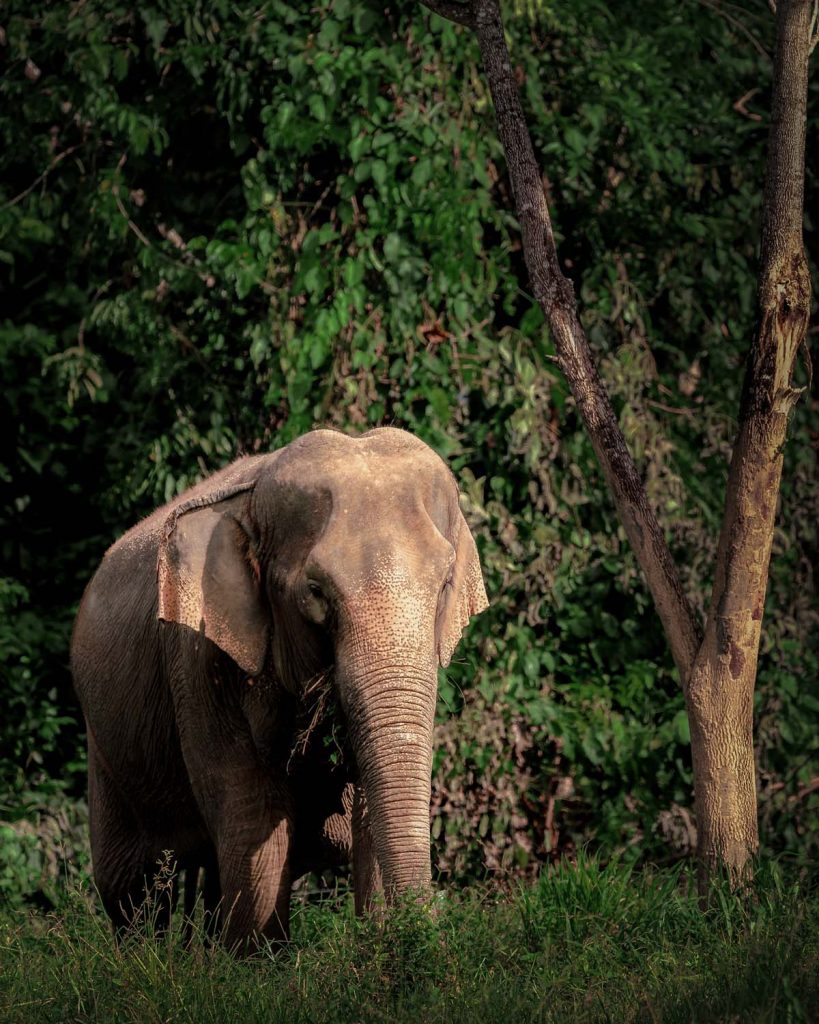
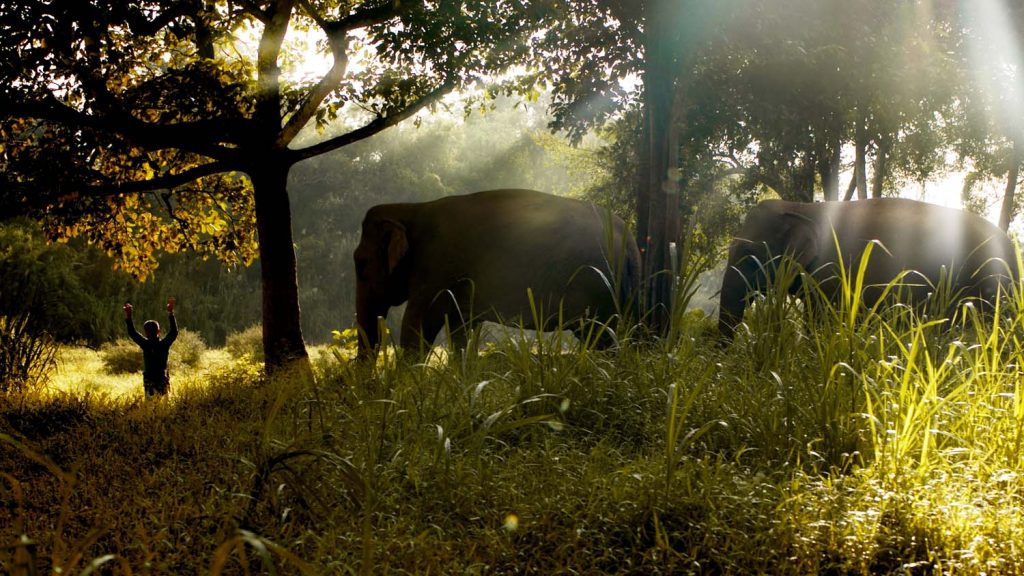
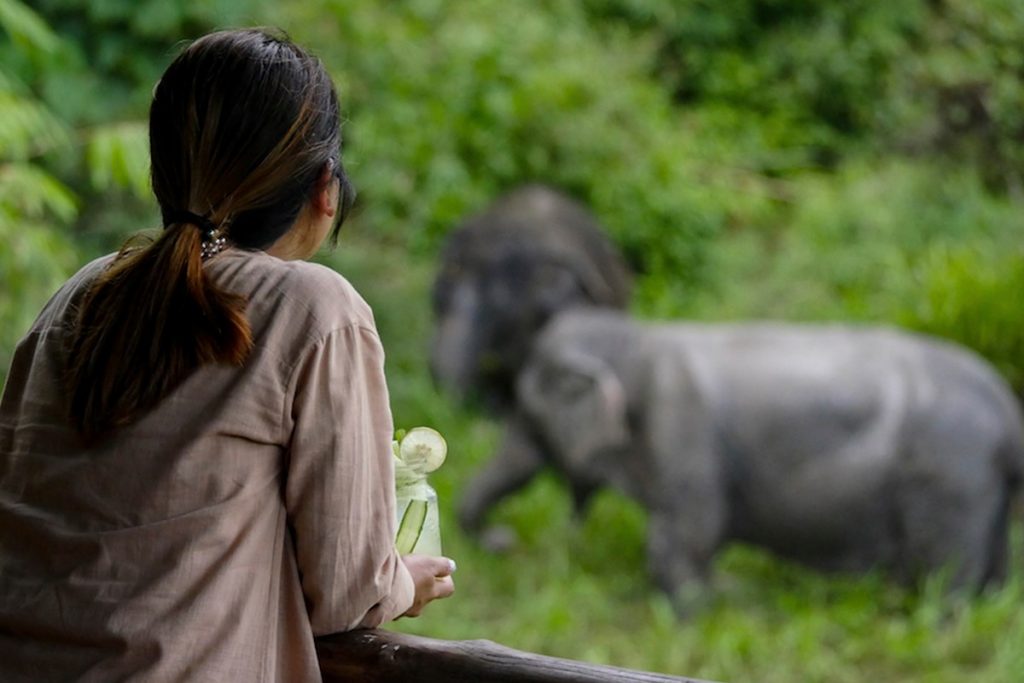
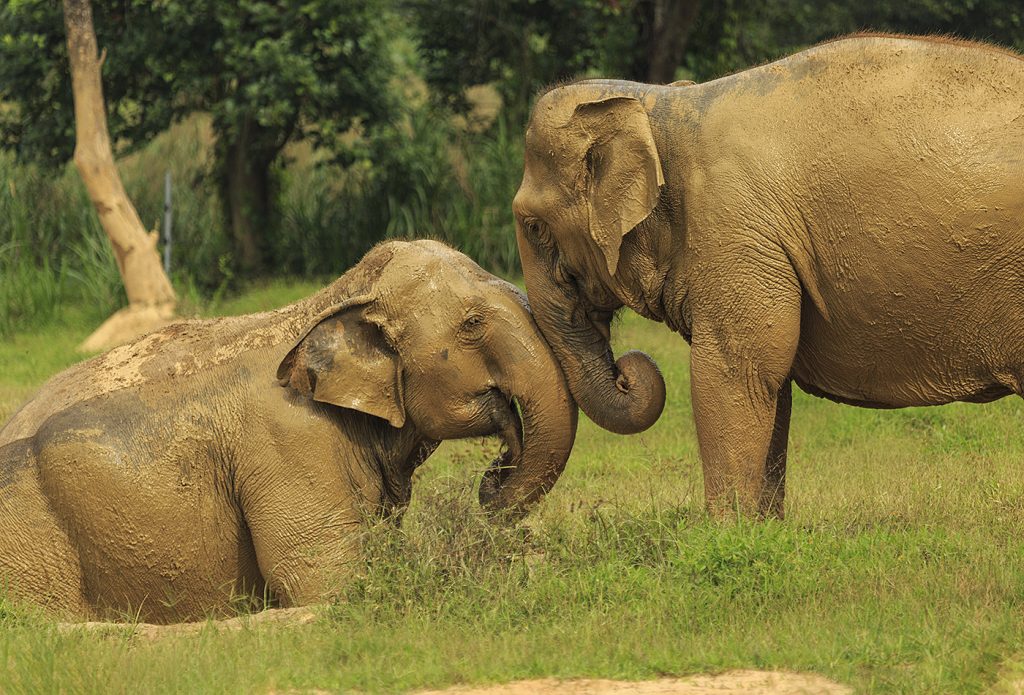
At around $400 a week, feeding and maintaining a rescue elephant is not cheap. To be frank, with elephants (and many other sustainability programs) your most effective form of voluntourisn is to volunteer a direct donation to an efficient, dedicated foundation.
More Samlors
Samlor drivers Khun Phrayad, 52 and Khun Sa-At, 64 are among the last of their tribe. Piloting their three-wheeled pedicabs around the streets of Chiang Mai they still feel like spring chickens, especially when compared to their oldest colleague who retired at age 98. Samlors have been dying out across the country for decades, replaced by tuk-tuks and taxis. Next time you see one, hail the driver and go for a relaxing ride around town. Yes, he’s working hard (but efficiently) and you’re not exploiting him. In fact, you’re sustaining a piece of Thai communal history and, more directly, also a family’s livelihood. Tip generously, of course.
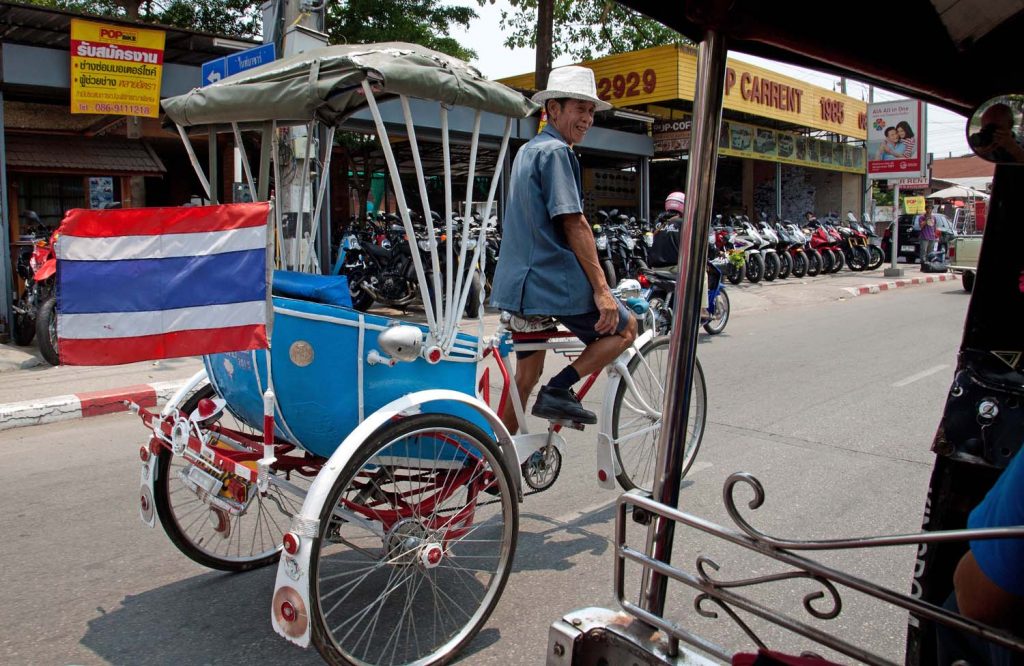
The First Resort
When checking out where to stay, first consider if your potential hotel or resort performs more than just ‘greenwashing’ eco-gestures. Have they ditched single-use plastics (especially water bottles)? Do they separate and recycle cardboard, glass and aluminium? They’ve replaced plastic straws with paper straws? And so on, from composting organic waste to the use of LED lights throughout the property. Some do, many don’t.
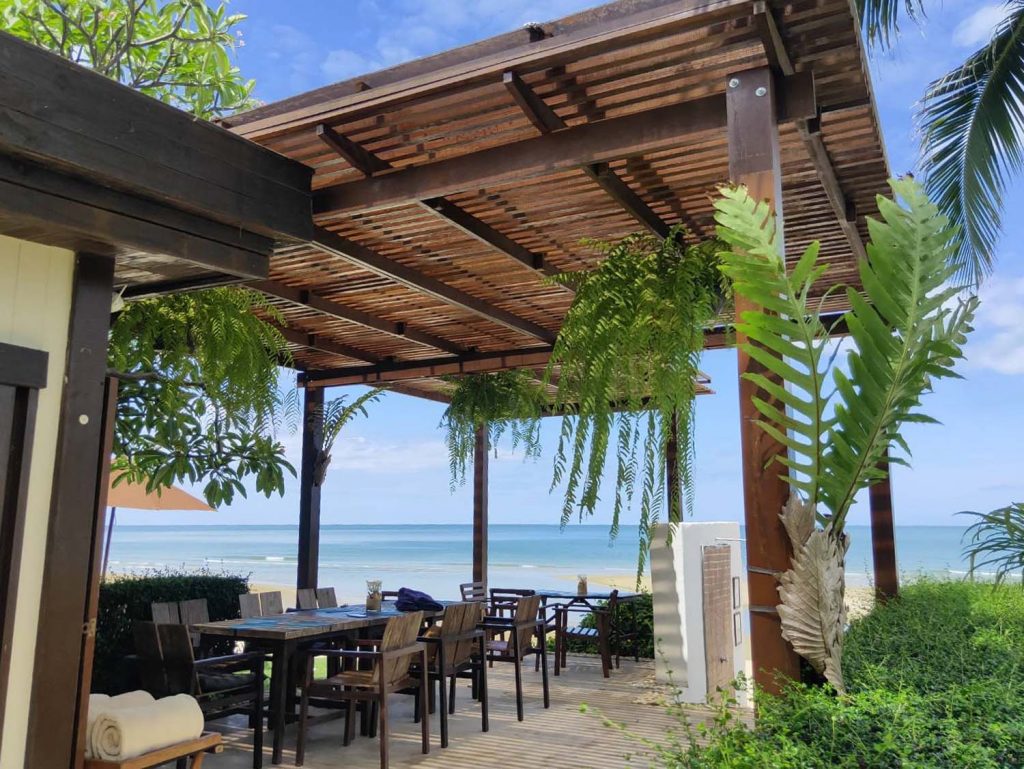
A tip that keeps on giving
Thailand is a tipping culture. Well-intentioned travellers engage there each day with a large, unacknowledged ‘community’ — the waiters, drivers, guides, hawkers and dozens of others who enable our journeys and entertainment. They are often members of Thailand’s large informal economy, and many have suffered greatly during Covid-19’s decimation of their livelihoods. The most effective, direct-action way that a traveller can sustain this most real community is to engage their services — and to tip appreciatively.
Random Acts of Sensible Stuff
When shopping for souvenirs, always check if they are made locally, and not in a far-off foreign factory. Be sure to turn off the air-conditioning when exiting your hotel room. Don’t buy flowers, etc from child hawkers — it’s not supporting community but child exploitation.
Go-to info
Dig deeper into these sustainable resources.
Wildlife
www.maikhaomarineturtlefoundation.org
www.phuketelephantsanctuary.org
Volunteering
Community Touring
www.handsacrossthewater.org.au

